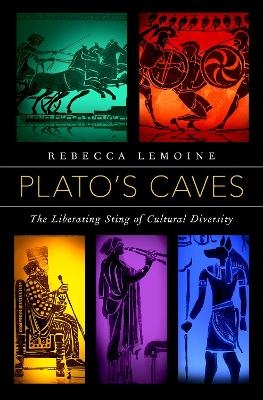
Plato's Caves
Oxford University Press Inc (Verlag)
978-0-19-093698-3 (ISBN)
In Plato's Caves, Rebecca LeMoine defends the bold thesis that Plato was a friend of cultural diversity, contrary to many contemporary perceptions. LeMoine shows that, across Plato's dialogues, foreigners play a role similar to that of Socrates: liberating citizens from intellectual bondage. Through close readings of four Platonic dialogues--Republic, Menexenus, Laws, and Phaedrus--LeMoine recovers Plato's unique insight into the promise, and risk, of cross-cultural engagement. Like the Socratic "gadfly" who stings the "horse" of Athens into wakefulness, foreigners can provoke citizens to self-reflection by exposing contradictions and confronting them with alternative ways of life. The painfulness of this experience explains why encounters with foreigners often give rise to tension and conflict. Yet, it also reveals why cultural diversity is an essential good. Simply put, exposure to cultural diversity helps us develop the intellectual humility we need to be good citizens and global neighbors. By illuminating Plato's epistemological argument for cultural diversity, Plato's Caves challenges readers to examine themselves and to reinvigorate their love of learning.
Rebecca LeMoine is Associate Professor of Political Science at Florida Atlantic University. She has published work in academic journals including the American Political Science Review, History of Political Thought, and Polis: The Journal for Ancient Greek and Roman Political Thought.
Acknowledgments
1. Introduction
2. Setting the Stage: A World of Caves
Part I: Athenians and foreigners
3. The Panharmonic Music of the Piraeus: Diversity, Democracy, and Philosophy in the Republic
4. Civic Myths through Immigrant Voices: Aspasia as Gadfly in the Menexenus
Part II: Athenians as foreigners
5. An Athenian in Crete: Moderating the Song of the Armed Camp in the Laws
6. Socrates the Foreigner? Self-Examination and Civic Identity in the Phaedrus
7. Conclusion
Notes
Bibliography
Index
| Erscheinungsdatum | 29.01.2020 |
|---|---|
| Verlagsort | New York |
| Sprache | englisch |
| Maße | 236 x 163 mm |
| Gewicht | 567 g |
| Themenwelt | Geschichte ► Allgemeine Geschichte ► Vor- und Frühgeschichte |
| Geschichte ► Allgemeine Geschichte ► Altertum / Antike | |
| Geisteswissenschaften ► Philosophie | |
| Sozialwissenschaften ► Politik / Verwaltung ► Politische Theorie | |
| ISBN-10 | 0-19-093698-3 / 0190936983 |
| ISBN-13 | 978-0-19-093698-3 / 9780190936983 |
| Zustand | Neuware |
| Haben Sie eine Frage zum Produkt? |
aus dem Bereich


